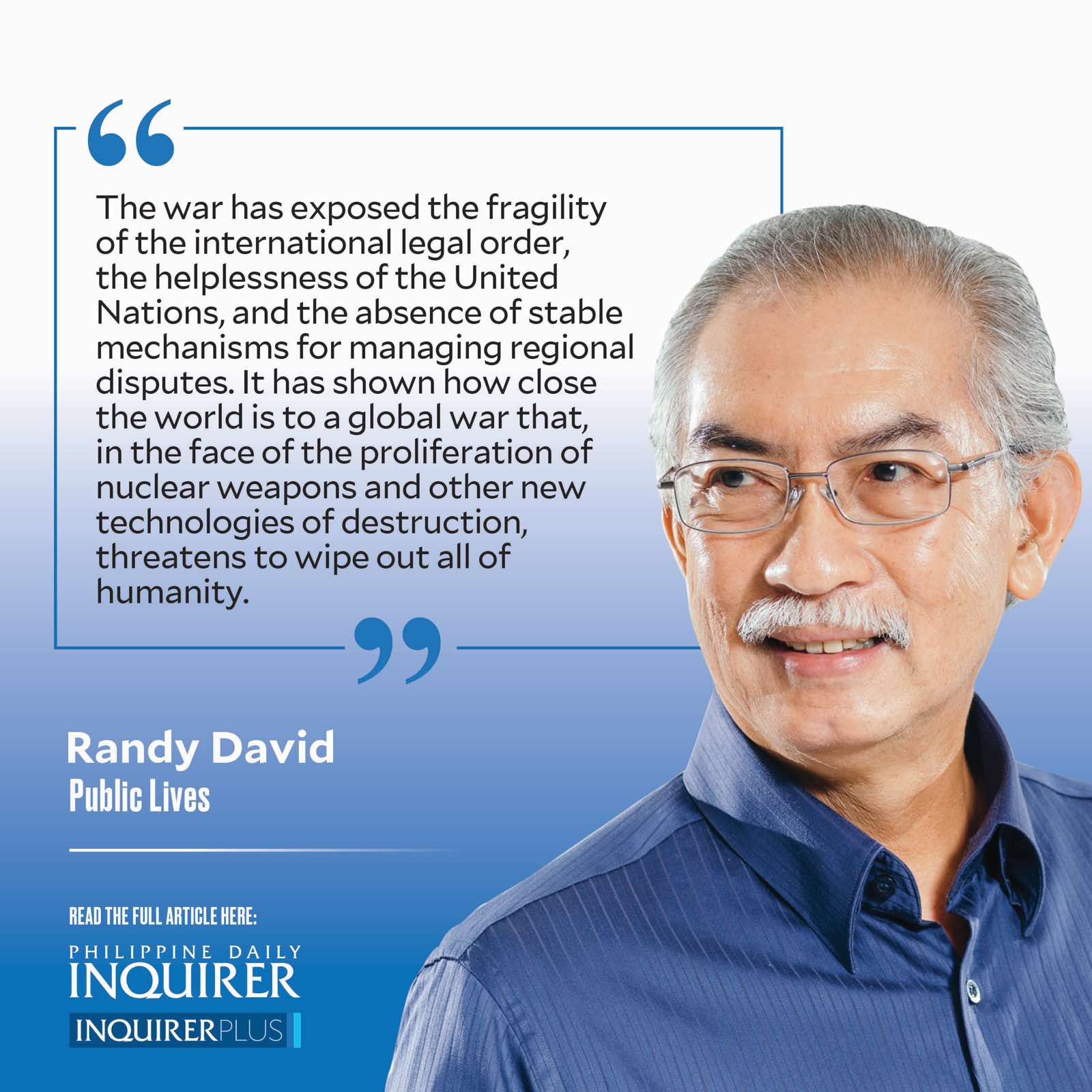War and the larger questions of our time

It is difficult not to feel outraged, bothered — and helpless at the same time — as we watch the latest news on the ongoing Israeli-Palestinian war in the Middle East and the ceaseless slaughter of defenseless civilians that has resulted from it. In an effort to gain some understanding of the origins of this war, we, who live far away from the conflict, find ourselves being slowly drawn to one side or the other.
From that vantage point — whether it is from Israel’s right to defend itself or from the Palestinian cause to live in freedom — the complexity of the situation tends to be reduced to a contest between good and evil, between oppressor and oppressed, between right and wrong, or between the innocent and the guilty. The reasoning assumes diverse forms — political, moral, religious, legal, racial, ideological, etc. Every conceivable justification is marshaled in defense of either side.
This dynamic has now spread as a culture war in various college campuses all over the world, notably in the United States and Europe. It has divided communities, families, churches, political parties, and, not least, chat groups previously devoted to benign topics like aging, healing, health, travel, cuisine, and entertainment. It has prompted citizens of different nations to mount protests against their government’s position on the conflict. It has awakened dormant prejudices and fanned the embers of preexisting culture wars.
Article continues after this advertisementThe war has exposed the fragility of the international legal order, the helplessness of the United Nations, and the absence of stable mechanisms for managing regional disputes. It has shown how close the world is to a global war that, in the face of the proliferation of nuclear weapons and other new technologies of destruction, threatens to wipe out all of humanity.
There are two ways of looking at the problems we collectively face. The first is to define it as the quest for new forms of restoring order in a fractured world, of promoting greater cooperation and solidarity among peoples, of finding effective ways of dealing with shared problems like pandemics and climate change, and of sharing the world’s wealth with the least, the marginalized, and the excluded. This is the mandate of the United Nations and its numerous multilateral agencies. It is now also increasingly the concern of transnational civil society organizations.
The second way of looking at the global problem is to approach it from the perspective of a global society that is evolving in unpredictable and uneven ways. This evolutionary process generates new opportunities and risks, as well as dangers and stresses, here and there. It’s difficult to determine with certainty how different peoples and their governments experience these evolving global conditions and challenges. But we know that differences and conflicts are bound to arise as different regions respond and adapt to these changing global conditions. What we are also seeing is that governments and social movements will try to manage these through political and other means.
Article continues after this advertisementThe first perspective is basically ameliorative. It seeks ways to advance global welfare and humanitarian solidarity while searching for peaceful paths to the resolution of conflicts. The second approach is analytical and mainly concerned with mapping the path of world societal change. It seeks to locate the roots and causes of regional conflicts in the twists and turns of global society rather than, for example, in the rise of authoritarianism, ethnonationalism, religious fundamentalism, and jihadist terrorism. It views the latter phenomena more as consequences than as causes.
A global system view of human society has given me a better understanding of the social processes that have led to the incredible number of people who leave their countries of origin and end up becoming refugees in a world that has no use for them. They are not just oppressed or exploited in the traditional sense. A more accurate description would be to see them as summarily excluded from the main currents of modern society in which they can fulfill their aspirations.
We see this in the unabated flow of migrants from places that had either been destroyed by recurrent wars or had simply stagnated in isolation. With their ubiquitous cell phones, we see people who, despite their isolation, are ironically connected and informed about the world outside. They long to be part of the inclusive modern world, wherever that may be, in which they and their children can have reason to hope.
Palestinians are no different. Seeing how their Israeli neighbors live, they, too, seek a chance for their children to flourish, either in their own country or elsewhere. It is true that human beings might find some happiness even in the direst conditions. But what they may not suffer indefinitely is to be treated as refugees in their own country, consigned by an occupying power to an existence that restricts them to where they are — indeed, like inmates in an open-air prison.
















